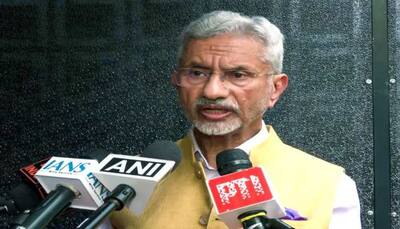New Delhi: A political slugfest has erupted over a startling allegation that India may have compromised its own military operation by warning Pakistan in advance. The charge, levelled by Congress leader Rahul Gandhi, has put the spotlight on the government’s handling of Operation Sindoor, a retaliatory strike launched by India against terror camps in Pakistan following the April 22 Pahalgam terror attack that killed 26 civilians.
Gandhi’s accusation is based on remarks made by External Affairs Minister S. Jaishankar, who can be seen in a video stating that India had “sent a message” to Pakistan at the outset of the operation. According to the minister, the government told Pakistan it was targeting terror infrastructure, not military assets, giving Islamabad the “option” to stay out of the conflict.
“This was a crime. Who authorised this? How many of our aircraft were lost as a result?” Rahul Gandhi said in a scathing post on X (formerly Twitter).
His words were not just political rhetoric, they reflected a growing concern within security and diplomatic circles over the potential implications of such a move, if true.
The External Affairs Ministry has not formally denied the contents of the video. However, the government’s press arm, the Press Information Bureau (PIB), swiftly issued a clarification, saying the minister’s comments were misinterpreted and misquoted.
Yet, his exact words in the video remain publicly accessible, raising further questions about the context and timing of the communication with Pakistan.
Military Precision or Diplomatic Overreach?
Operation Sindoor was projected as a carefully calibrated strike against terror hubs in Pakistan’s Punjab province and Pakistan-occupied Kashmir. It was positioned as India’s strong response to the bloodshed in Pahalgam – an assertion of zero tolerance against cross-border terrorism.
But the claim that India informed Pakistan – its long-time adversary – before launching these strikes has triggered fears that the operation may have been strategically undermined from within.
Military analysts warn that even a hint of prior intimation could erode the element of surprise, potentially endangering pilots, compromising mission objectives and allowing terrorist elements to escape.
“If we alerted the enemy before taking off, it raises serious national security concerns. Whose interests were being protected – ours or theirs?” said a retired Air Marshal on condition of anonymity.
The most pointed question comes from the heart of the matter: did this communication cost lives – or aircraft?
A Matter of Trust
At the core of the controversy lies a deeper trust issue. If the government, as alleged, took the extraordinary step of sending a pre-strike message to Pakistan, then transparency becomes critical. Was it a tactical move to avoid escalation? A diplomatic overture to preserve military parity? Or a decision that endangered national security under the guise of calculated restraint?
Opposition leaders are demanding answers and accountability.
“This is not just about political grandstanding. This is about the sanctity of our armed forces. If the enemy was tipped off, then someone within our system must be held responsible,” said a Congress leader.
The incident has opened yet another front in India’s ever-polarised political battlefield, with the ruling BJP defending its national security credentials and the Congress seizing the moment to corner the government on what it calls a betrayal of operational integrity.
Stay informed on all the , real-time updates, and follow all the important headlines in and on Zee News.








